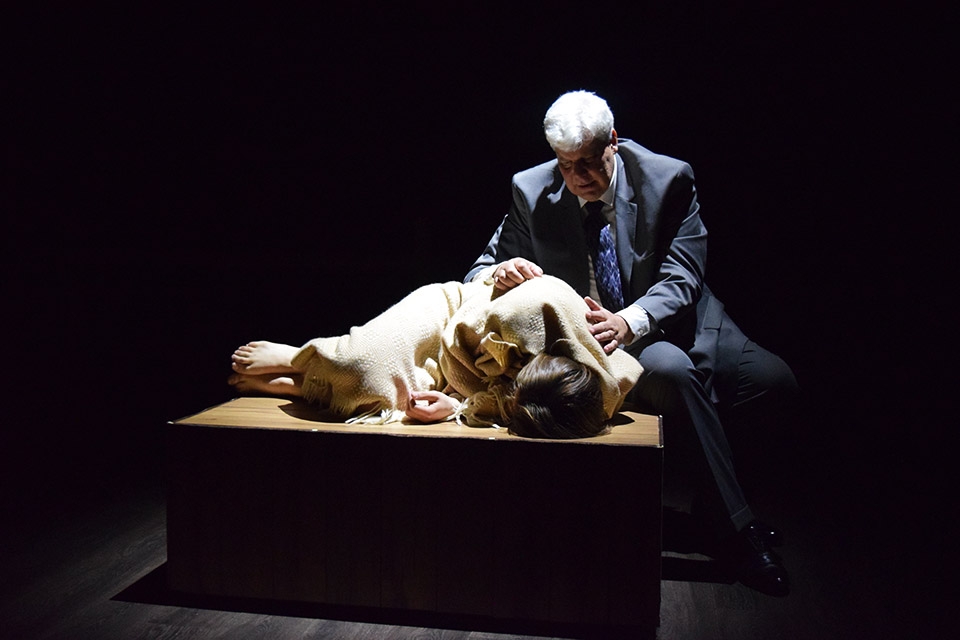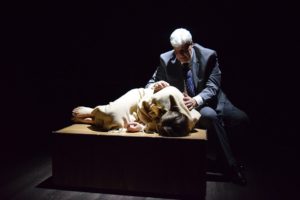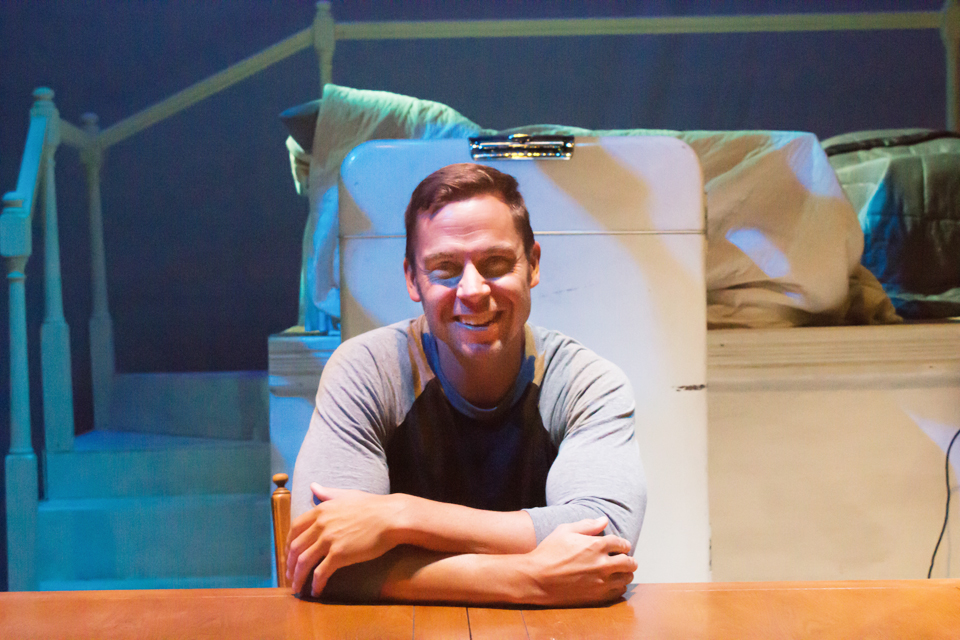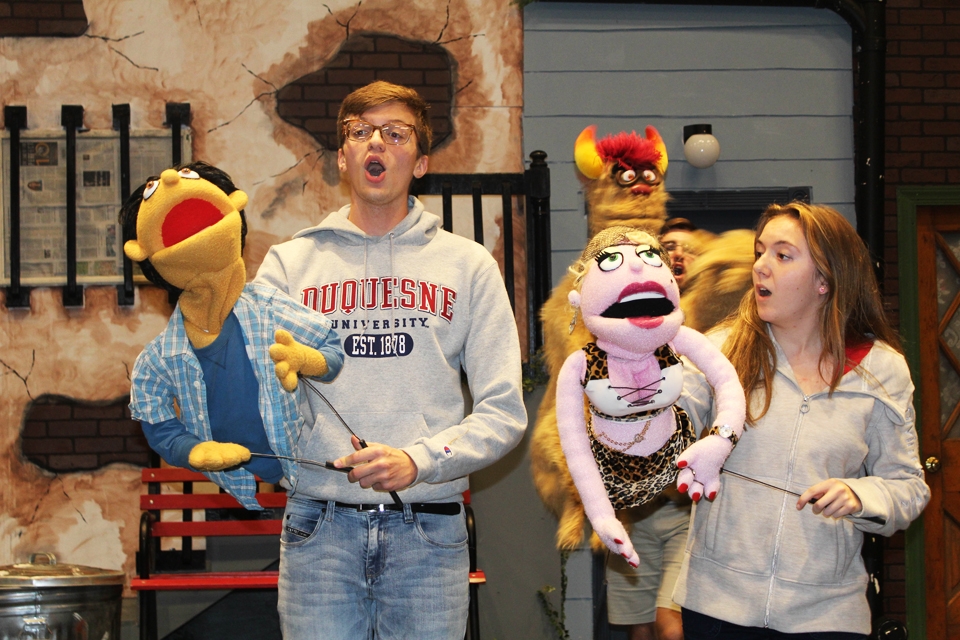

The Duquesne Red Masquers’ production of Equus will run until April 29.
Carolyn Palombo | Staff Writer
04/19/2018
Disclaimer: A member of The Duke staff is involved in this production.
From April 12-29, the Duquesne Red Masquers are performing the production Equus every Thursday through Sunday.
The show is a telling feature about a mentally ill young man, Alan Strang (Evan W. Saunders), working with his psychiatrist, Martin Dysart (John E. Lane, Jr.). Equus is meant to challenge the viewer’s traditional thoughts of religion and normality, which are regularly too taboo to question. Ultimately, it provides a glimpse at what mental health means and whether it is ethical to change someone’s beliefs to give them the chance to live a “normal life.”
At the beginning of the performance, Dysart starts by telling the audience how he has been questioning parts of his life: his career and morality. Normally, no one would question the necessity of helping those that are mentally ill maintain a state of health, but Dysart mentions that he has been thinking about his profession and how it has caused him to change people — and whether for better or worse. Dysart blames his questioning of his work’s ethicality on one specific person, Strang.
Strang is a uniquely problematic 17-year-old who has just been put on trial and sent into a psychiatric care unit in lieu of prison. The plot eventually spirals into varying concepts of society: communism, religion and the recurring theme of mental illness. Sexuality is also a large and sensitive theme in Equus, so if you are especially sensitive to sexual actions, this play is not for you. This show breaks a lot of boundaries and requires an open mind to view it.
As Dysart unravels the mind of Strang, Dysart begins to question the psyche more and more. Without giving too much away, Strang eventually leads Dysart to believe that Dysart’s profession has consisted entirely of taking individuals with their own freedoms and opinions and stripping their singularity away. This inherently makes Dysart unethical.
Lane portrays Dysart beautifully, showing the frustrations and troubles of a man who has lived his entire life believing he was helping people. Lane’s booming voice adds the drama and confidence of the doctor himself, and elicits a clear view of the emotional pain brought on by Strang’s case.
Saunders does a terrific job at portraying a terrifying — possibly dangerous — boy. His character, Strang, is impetuous and intense, but when necessary, he crumbles into a broken human who practically begs for empathy.
Most of the cast does an excellent job as well, such as Max Begler and Rachel Noderer, who play Frank and Dora Strang, Alan’s parents. Together, they compel the entire audience to both dislike and pity them, explaining that their son was their biggest heartbreak but blaming his state on each other. Sadie Crow, who played Dr. Dysart’s comrade, Hesther Salomon, offers a soft voice and a strong presence that contrasts excellently with the Strang family.
The Red Masquers are incredibly imaginative with this play, creating costumes and settings that were simple yet effective. The horses consist of wire horse heads worn by a couple of actors and hooves connected to the actors’ shoes. The hooves stomped loudly everywhere they walked, which added to the emphasis of how powerful these creatures were in the symbolism of the play.
Equus is an incredibly challenging play with questionable concepts, but nonetheless, it invokes curiosity from all who see it. The topics are daring and abnormal, but incredibly interesting. It requires a cast that matches its level of intelligence to accurately produce it. All of the scenes are quite literal at points and more sensitive people should be careful when viewing. No matter what, the play is sure to make you question your “normal life.”




